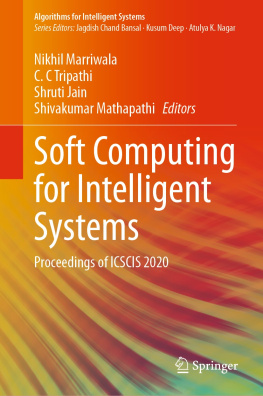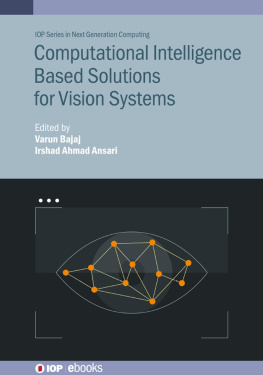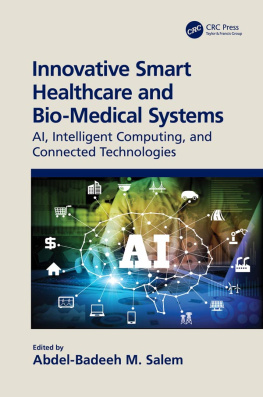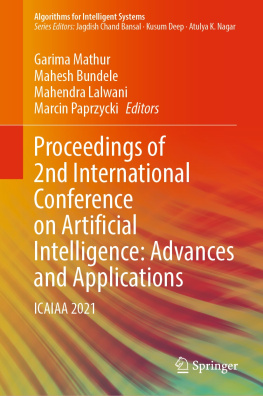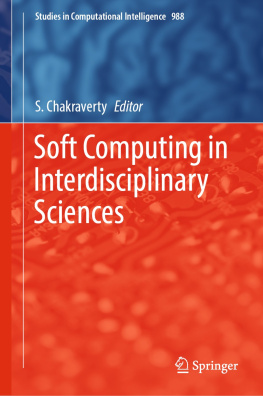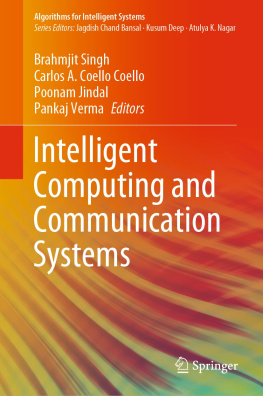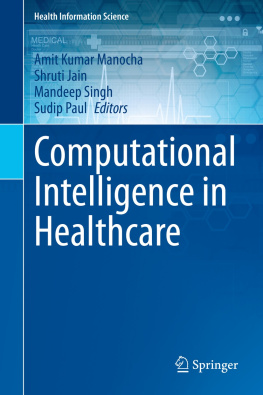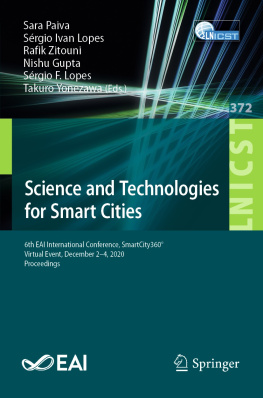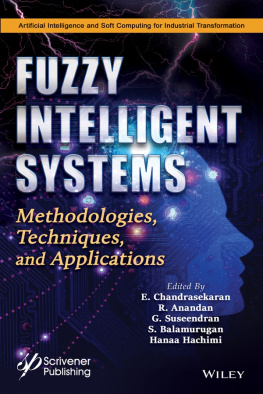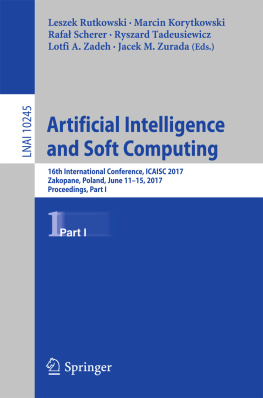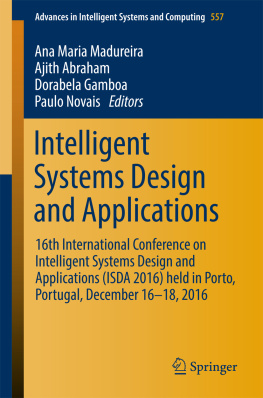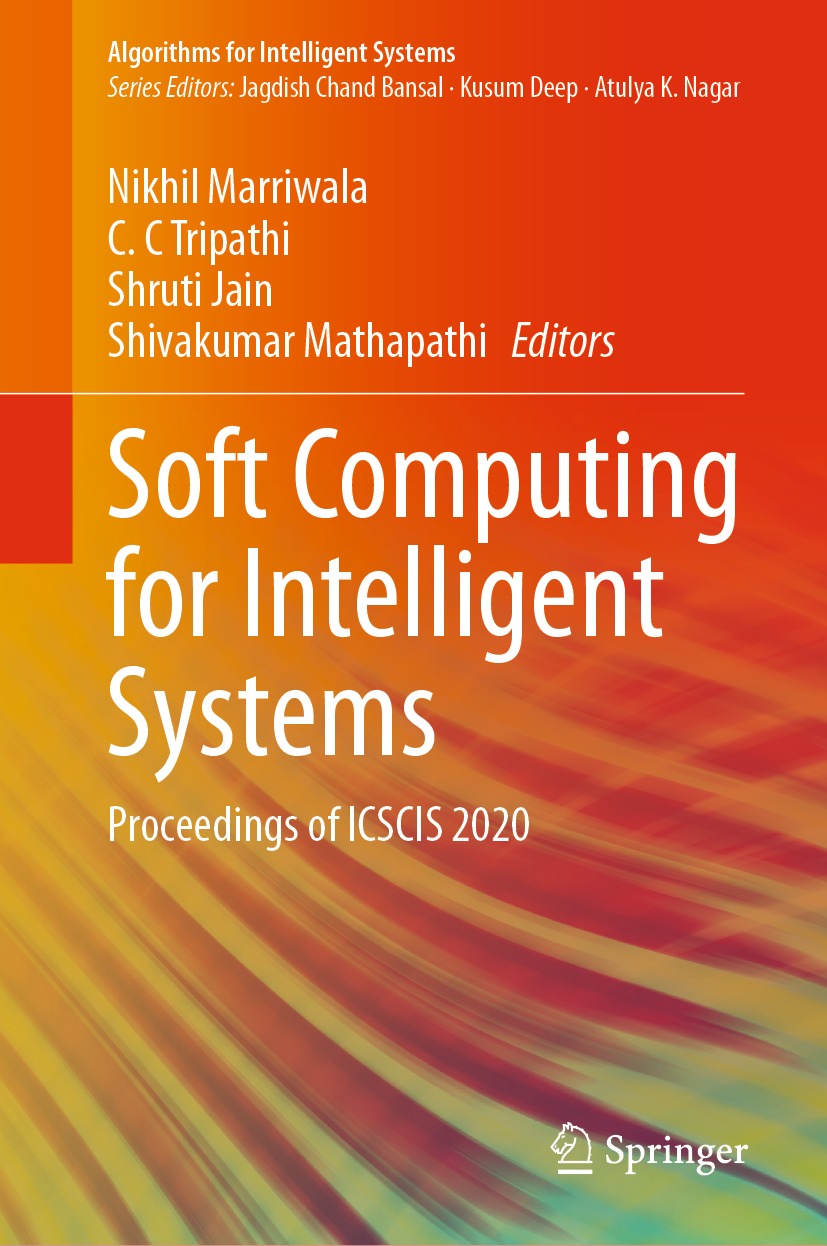Algorithms for Intelligent SystemsSeries EditorsJagdish Chand BansalDepartment of Mathematics, South Asian University, New Delhi, Delhi, India
Kusum DeepDepartment of Mathematics, Indian Institute of Technology Roorkee, Roorkee, Uttarakhand, India
Atulya K. NagarSchool of Mathematics, Computer Science and Engineering, Liverpool Hope University, Liverpool, UK
This book series publishes research on the analysis and development of algorithms for intelligent systems with their applications to various real world problems. It covers research related to autonomous agents, multi-agent systems, behavioral modeling, reinforcement learning, game theory, mechanism design, machine learning, meta-heuristic search, optimization, planning and scheduling, artificial neural networks, evolutionary computation, swarm intelligence and other algorithms for intelligent systems.
The book series includes recent advancements, modification and applications of the artificial neural networks, evolutionary computation, swarm intelligence, artificial immune systems, fuzzy system, autonomous and multi agent systems, machine learning and other intelligent systems related areas. The material will be beneficial for the graduate students, post-graduate students as well as the researchers who want a broader view of advances in algorithms for intelligent systems. The contents will also be useful to the researchers from other fields who have no knowledge of the power of intelligent systems, e.g. the researchers in the field of bioinformatics, biochemists, mechanical and chemical engineers, economists, musicians and medical practitioners.
The series publishes monographs, edited volumes, advanced textbooks and selected proceedings.
More information about this series at http://www.springer.com/series/16171
EditorsNikhil Marriwala , C. C Tripathi , Shruti Jain and Shivakumar Mathapathi
Soft Computing for Intelligent Systems
Proceedings of ICSCIS 2020
1st ed. 2021
Logo of the publisher
EditorsNikhil MarriwalaDepartment of Electronics and Communication Engineering, Kurukshetra University, Kurukshetra, Haryana, India
C. C TripathiUniversity Institute of Engineering and Technology (UIET), Kurukshetra University, Kurukshetra, Haryana, India
Shruti JainDepartment of Electronics and Communication Engineering, Jaypee University of Information Technology, Waknaghat, Himachal Pradesh, India
Shivakumar MathapathiCo-Founder of Dew Mobility, Santa Clara University, Santa Clara, CA, USA
ISSN 2524-7565 e-ISSN 2524-7573
Algorithms for Intelligent SystemsISBN 978-981-16-1047-9 e-ISBN 978-981-16-1048-6
https://doi.org/10.1007/978-981-16-1048-6
The Editor(s) (if applicable) and The Author(s), under exclusive license to Springer Nature Singapore Pte Ltd. 2021
This work is subject to copyright. All rights are solely and exclusively licensed by the Publisher, whether the whole or part of the material is concerned, specifically the rights of translation, reprinting, reuse of illustrations, recitation, broadcasting, reproduction on microfilms or in any other physical way, and transmission or information storage and retrieval, electronic adaptation, computer software, or by similar or dissimilar methodology now known or hereafter developed.
The use of general descriptive names, registered names, trademarks, service marks, etc. in this publication does not imply, even in the absence of a specific statement, that such names are exempt from the relevant protective laws and regulations and therefore free for general use.
The publisher, the authors and the editors are safe to assume that the advice and information in this book are believed to be true and accurate at the date of publication. Neither the publisher nor the authors or the editors give a warranty, expressed or implied, with respect to the material contained herein or for any errors or omissions that may have been made. The publisher remains neutral with regard to jurisdictional claims in published maps and institutional affiliations.
This Springer imprint is published by the registered company Springer Nature Singapore Pte Ltd.
The registered company address is: 152 Beach Road, #21-01/04 Gateway East, Singapore 189721, Singapore
Preface
The aim of this conference is to serve for educators, researchers, and developers working in the area of recent advances and upcoming technologies utilizing computational sciences in signal processing, imaging, computing, instrumentation, artificial intelligence, and their applications. This conference will provide support and aid to the researchers involved in designing latest advancements in communication and intelligent systems that will permit the societal acceptance of ambient intelligence. The proceedings of the conference Soft Computing for Intelligent Systems (SCIS-2020) encompass all branches of Artificial Intelligence, Computational Sciences, and Machine Learning which are based on computation at some level such as AI-based Internet of Things, Sensor Networks, Robotics, Intelligent Diabetic Retinopathy, Intelligent Cancer Genes Analysis using Computer Vision, Evolutionary Algorithms, Fuzzy Systems, Medical Automatic Identification Intelligence System and Applications in Agriculture, Healthcare, Smart Grid, Instrumentation Systems, etc. It presents the latest research being conducted on diverse topics in Soft Computing with the goal of advancing knowledge and applications in this rapidly evolving field. Authors were invited to submit papers presenting novel technical studies as well as position and vision papers comprising hypothetical/speculative scenarios. It presents the latest research being conducted on diverse topics in intelligent technologies to advance knowledge and applications in this rapidly evolving field. The conference is seen as a turning point in developing the quality of human life and performance in the future, and therefore it has been identified as the theme of the conference. The overall goal of this conference is to present the latest snapshot of the ongoing research as well as to shed further light on future directions in the area of soft computing and artificial intelligence. The aim of this conference is to serve for researchers, educators, and developers working in the area of upcoming technologies in the field of Computational Systems; Deep Learning; IOE; Sensor Networks; Robotics; Intelligent Body Area Network for Healthcare; Embedded Systems; and Intelligent Computing Techniques, Modeling, and Simulations.
The overall goal of this conference is to present the latest snapshot of the ongoing research as well as to shed further light on future directions in this space. Authors are invited to submit papers presenting novel technical studies as well as position and vision papers comprising hypothetical/speculative scenarios.
For the proper review of each manuscript, every received manuscript was first checked for plagiarism and then the manuscript was sent to three reviewers. In this process, the committee members were involved and the whole process was monitored and coordinated by the General Chair. The Technical Program Committee involved senior academicians and researchers from various reputed institutes. The members were from India as well as abroad. The technical program mainly involves the review of the paper. A total of research papers were received, out of which 50 papers were accepted and registered and presented during the 3-day conference, acceptance ratio is

